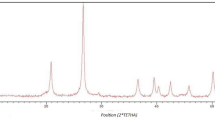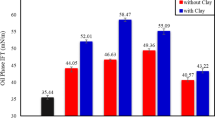Abstract
I HAVE read with great interest Dr. McKenzie Taylor's letter entitled “Base Exchange and the Formation of Coal” which appeared in NATURE of May 19, and am particularly interested in his description of the experiments conducted by him concerning the bacterial decomposition of fats under a roof containing hydrolysing sodium clay. Fats, as a body, are lighter than water, and I am wondering whether Dr. McKenzie Taylor has conducted any experiments, or has any evidence, to show that in Nature solid fats could be a sedimentary deposit in water and accumulate as such together with sand. Some eighteen years ago I demonstrated that oils can be deposited in considerable quantity as an aqueous sediment together with mud or clay, but my experiments indicated that oils could not be similarly deposited by, or together with, sand. For a full description of the phenomenon and my experiments, and also how in Nature the oil would afterwards be squeezed out of the clay into a sand bed, reference may be made to my book, “The Geology of Oil, Oil-Shale, and Coal.”
This is a preview of subscription content, access via your institution
Access options
Subscribe to this journal
Receive 51 print issues and online access
$199.00 per year
only $3.90 per issue
Buy this article
- Purchase on SpringerLink
- Instant access to full article PDF
Prices may be subject to local taxes which are calculated during checkout
Similar content being viewed by others
Author information
Authors and Affiliations
Rights and permissions
About this article
Cite this article
STUART, M. Base Exchange and the Formation of Petroleum. Nature 121, 940 (1928). https://doi.org/10.1038/121940b0
Issue Date:
DOI: https://doi.org/10.1038/121940b0



